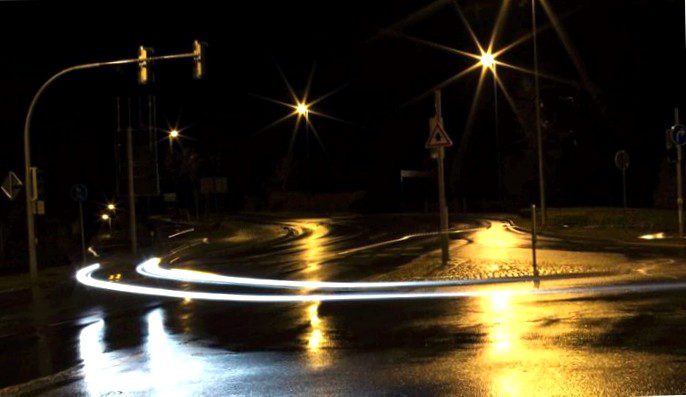
In the event of an accusation of a hit-and-run / hit-and-run driver, there are many defense strategies available. Of all defense strategies, however, this one might be the most popular: “I didn”t notice anything.”. But is it also the best?

You don’t have to know a lot about law, but this much you instinctively know: “Thoughts are free. What I felt and what I didn”t feel or what I saw and what I didn”t see, only I know. No one can ever prove this.”
And in fact, it is not so easy to prove that you actually noticed the accident.
There are a lot of experts who spend many years of their professional life sitting in discarded cars day in and day out with lots of complicated measuring devices to determine which accidents are felt or heard and which are not. And it is one of these experts who will be summoned by the judge at the end and who is supposed to give information on whether you felt, heard or saw your accident or not.
Of course, there are accidents where this question of being aware is not doubtful. If, for example, a witness observed you intensively inspecting the front of the vehicle parked behind you after parking, it is clear that you must have noticed something. Or, if a bicyclist flies over the hood of your car and smashes into your windshield a sog. If the driver leaves behind a “head spider”, this question does not need to be discussed further. But very often it is by no means certain that you must have really noticed your accident.
Particularly clever?
Your lawyer, whom you hopefully consulted immediately after you received mail from the police, will tell you about your defense idea: “Yes, may be. But this is not particularly clever. In any case, not now.”
Of all defense strategies, this is also the second worst. Because when you say you didn’t notice the accident, you’re also admitting to being there at the accident. And this usually means that you were the driver of your vehicle when the accident happened.
And with that you have given away the best and most promising possibility to defend yourself carelessly and without any need: leaving the police in the dark about who actually drove your vehicle. It may well be that you were the driver of the vehicle – but why do you want to make the police aware of this?? (This was a rhetorical question. Indeed, there is no sensible answer to this question.)
Not having noticed the accident, you can still object later on. You should also do this. But only at the right time. And the right time to do this is almost never right at the beginning of an investigation. At the beginning of the investigation process, the only question is who was driving your vehicle in the first place. And disclosing this to the police is usually the worst thing you can do to yourself or your loved ones.
Are there witnesses?
Of course, there are cases in which it is clear that you have been driving. For example, if you have been reported by your neighbor who knows you well and observed the accident while smoking on the balcony, the police will assume that you were driving. But trust yourself to be able to assess whether your case is really such a clear case?
Perhaps the neighbor only saw your vehicle and simply assumed that you must have been sitting in it because he had only ever seen you driving this car alone for the last 20 years. Maybe your neighbor is old or will die of lung cancer very soon, before he can be questioned by a judge.
Inspect the investigation file
Whether it really makes sense to admit that you were the driver of the vehicle is something you can only judge after you have seen the investigation file. Your lawyer can judge this even better after looking at the investigation file. And until this moment the old wisdom of every criminal defense lawyer applies – no, not “talk is silver, silence is gold.”, but: – “First: Shut up. Secondly: Shut up. And thirdly, very important: Shut up.”
But no rule without exception
In the event of an accident – first – when parking or backing out of a parking space, there is a chance of avoiding punishment if the damage caused – second – is less than about 1.300 € and – thirdly – you voluntarily turn yourself in to the police within the first 24 hours. All 3 conditions must be fulfilled. You can find out more about this on the page on the 24-hour rule.
“>